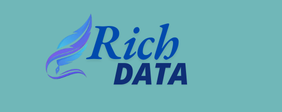A multitude of applications available to users, and this is a market that is experiencing excellent growth. This is because, in most cases, users depend on these apps for various activities, as they provide great convenience.
But for developers, creating apps isn’t just about developing them: making an app available is a very bureaucratic process. If you intend to make your app available for download on Google or the App Store, you’ll need some guidance in this process so that it doesn’t take too long.
This process is called approval, where applications become official and available to users. Approving an application means that it will be available in stores, but it must meet certain specific criteria.
We have listed the biggest difficulties in carrying out this approval, follow along:
Homologation costs
Stores have different fees, which are not cheap. The Apple Store, for example, has two registration methods, but both have the same fee.
If you register individually, which is intended for developers and individuals, or for the so-called organization, which is for companies that want to publish applications, the fee charged is US$99.00 per year, approximately R$352.75. There is saudi arabia phone number data also the enterprise program, which costs US$299 or R$1,065, and is also intended for companies, but follows some different rules.
As for the Google store, the cost of publishing is $25, where the user only pays once and can publish as many applications as they want.
Publication time
Apple takes an average of 15 days to make the app available, as it has a much more bureaucratic process. It reputation management: tools, methods and strategies carries out a very rigorous review to approve the application.
In this part, Google also has a very mild bureaucracy, as it takes about four hours for the app to be available in the store.
The gains
If you work with selling apps, the stores have an administration fee. So in addition to making them official, you bz lists also need to calculate your earnings based on these fees. Both charge 30% on earnings.

